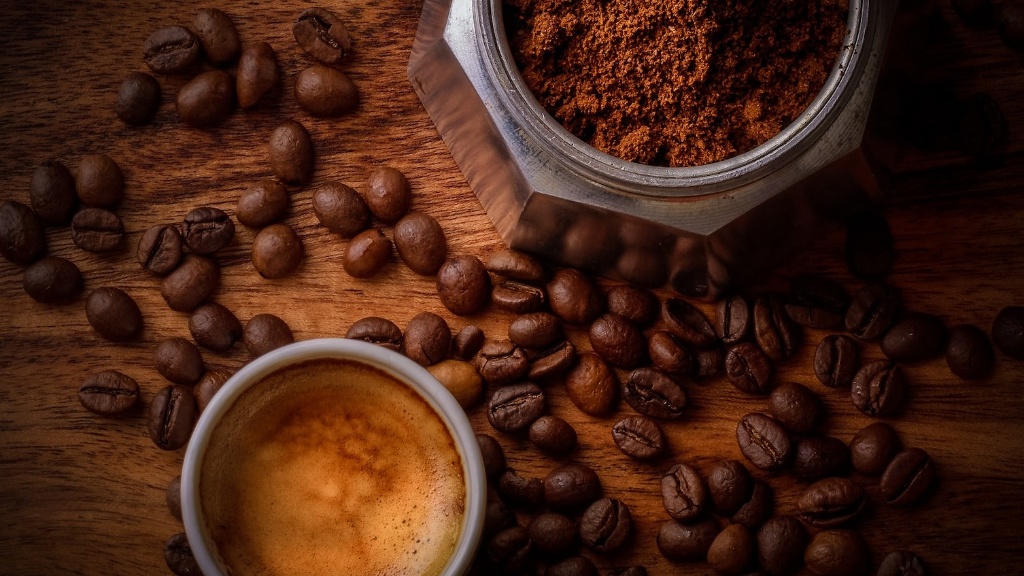How Long After Drinking Coffee Can I Brush My Teeth?
Do you live by the adage of “a cup of coffee a day keeps the dentist away”? Coffee lovers around the world enjoy the energizing effects of a cup of java while attempting to keep their pearly whites looking their best. But wait, when is the best time to brush your teeth after that helping of caffeinated fuel?
When that afternoon slump hits, many of us reach for a cup of coffee for an immediate energy boost. But before heading for your toothbrush, there are a few things to consider.
Coffee contains acids—tannic acid, to be precise—which can weaken the enamel of your teeth with continued exposure. These acids can make your teeth more sensitive and prone to dental decay, like cavities if not washed away.
So, what are the recommendations? To help protect your teeth from any acid-related damage, the American Dental Association (ADA) and leading dentists recommend waiting at least 30 minutes before brushing, even up to an hour after drinking a cup of coffee.
Although coffee is acidic enough to cause tooth enamel damage, it is not as corrosive as soda, energy drinks, and lemon juice. Drinking coffee with a straw may also help reduce contact with your teeth. For additional protection, swish a glass of water after consuming coffee, and consider drinking a glass of water immediately before brushing your teeth.
When you do brush and floss, it is essential to use the proper technique, which is easily achievable with the help of a dentist and the ADA’s brushing and flossing guidelines.
If you have pre-existing tooth sensitivity issues, you may consider using a desensitizing toothpaste, or discuss it with your dentist. Additional preventive treatments and solutions are available, such as dental sealants and topical or oral agents.
Ongoing Protection from Coffee Drinking
After successfully protecting your enamel from the potential damage of drinking coffee, prevention also involves protecting your teeth from future exposure.
Educate yourself on how to protect your teeth with regular brushing, flossing, and visits to the dentist. Cut back on consumption of acidic and sugary drinks, and opt for drinking water.
Commit to a quick rinse of the mouth after drinking coffee and make sure to brush 30 minutes to an hour later, and do not brush directly after drinking coffee.
One should look into drinking decaffeinated coffee or checking out alternative healthy drinks that contain little to no acidity.
Professional Dental Cleanings
While shielding your teeth from exposure to acids, consider scheduling regular dental cleanings.
A professional cleaning or prophylaxis is a common dental treatment that goes beyond your day-to-day hygiene routine. It serves as a more comprehensive cleaning than what a person can achieve at home and involves the use of specialized tools to remove plaque and tartar.
During the procedure, your dentist can address problems like a buildup of plaque and tartar, oral health, and any tooth decay or related damage. Your dentist can also conduct an oral cancer screening with an intraoral camera during the cleaning.
During a professional cleaning, your dentist or hygienist will also provide advice on how to improve your oral hygiene.
At-Home Care for Coffee Drinkers
In addition to brushing and flossing at least twice daily, you should also make sure to visit the dentist regularly for check-ups. Dependent on your risk factors for gum diseases or cavities, the American Dental Association recommends visit the dentist every three to four months.
To further protect your teeth after drinking coffee, consider rinsing your mouth with water, drinking milk, or chewing sugarless gum. Eating a diet that is rich in fiber, fruits, and vegetables also help maintain healthy teeth and gums.
A bit of extra attention and care can help make sure that your teeth stay healthy so you can continue to enjoy coffee with the minimum risk to your teeth.
Additional Tooth Protection – Teeth Whitening
With regular oral health maintenance, many individuals find themselves searching for ways to whiten their teeth. While drinking coffee, tea, or soda can damage your teeth, you can still get your teeth back to looking their whitest.
The American Dental Association advises that if you would like to whiten your teeth, you should begin by talking to your dentist about the best option for you. The products available for purchase over the counter vary in their approach and concentration, so consulting a professional is the best way to get started.
Professional treatments from your dentist use a stronger concentration and will produce better results. While they may be more expensive, they are available in both in-office and take-home treatments. A professional will determine which treatment is best for your teeth, lifestyle, and goals.
Alternatives to Coffee
For those worried about eating away at the enamel of their teeth, there are plenty of alternatives to coffee in terms of energy boosts.
Tea, cocoa, and energy drinks are a few of the many options available. Boosters such as B12, green tea extracts or collagen, can also offer an energizing lift.
Decaffeinated coffee is also around and can be an enjoyable alternative for a warmer, roasted drink. The roasting process does lead to a small decrease in the levels of acids found in coffee, making it gentler on the enamel.
Achieving a balance between drinking coffee and brushing your teeth is key for the protection of your enamel. Educate yourself on the steps you can take to ensure healthy teeth, and remember to visit the dentist regularly for all necessary preventive and restorative treatments.
Changes in Lifestyle
Making sure to attend regular dentist appointments and protecting your enamel is all part of a healthy lifestyle. If a person who drinks coffee regularly starts to feel more sensitive after drinking it, they should consider making necessary lifestyle changes.
For example, cut down on the amount of coffee ingested, reduce the amount of creamer used, and drink plenty of water. Or if necessary, switch to decaf or tea.
These decisions should be tailored to you, your teeth, and overall lifestyle. Your dentist may have other specific suggestions for you, such as using a toothpaste for sensitivity, a whitening product, or scheduling a fluoride treatment or sealant.
In conclusion
As a part of your healthy lifestyle, monitor the effects of drinking coffee on your teeth. Consider ways to protect your teeth from acid damage and keep up with preventive and restorative treatments. Ask your dentist for suggestions and information on the best way to keep your teeth healthy.





